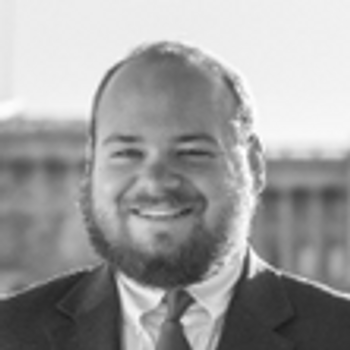CUNY confirms SJP anti-Semitism, but declines to ban group
“Death to Jews,” “Jews out of CUNY,” and “Drag the Zionist down the street” are all among the comments hurled at Jewish students from the City University of New York (CUNY) during a march for free tuition organized in part by Students for Justice in Palestine (SJP) in November.
This is just one of the many anti-Semitic incidents to take place at CUNY in the last few years, according to a report released Friday detailing anti-Semitic and anti-Zionist events on campus, which nonetheless concludes that the majority of the incidents are protected free speech. SJP, for its part, stressed the distinction between anti-Semitism and anti-Zionism, saying that the organization condemns all forms of racism, including anti-Semitism, while maintaining that anti-Zionism is opposition to an ideology, rather than a people.
CUNY says on its website that the 24-page report was compiled by former federal prosecutor Paul Shechtman and former Manhattan Federal Judge Barbara Jones, who spent nearly six months reviewing relevant documents and conducting more than 60 interviews with students, faculty, and alumni.
In an introductory note, CUNY Chancellor James Milliken acknowledges that the report’s findings raise serious First Amendment questions, and stresses the need to strike a balance between protecting free expression and condemning hateful speech.
[RELATED: University of Chicago held up as national model for free speech]
“As the authors are careful to emphasize, preserving the right to free expression is at the core of every university’s mission,” he states. “As they also note, CUNY leaders have promptly and strongly condemned speech—even when legally protected—that is hateful, discriminatory, and anti-Semitic.”
Among the allegations confirmed by the investigation were several other incidents involving SJP members, including anti-Zionist messages scrawled on public sidewalks at Brooklyn College that provoked a confrontation when one Jewish student’s mother attempted to wash off the chalk messages.
[RELATED: Muslim students disrupt pro-Israel event at UCI]
According to the report, the exact content of the exchange is disputed, “although it is clear that several SJP students approached the mother” and made confrontational comments.
The document also mentions the repeated verbal harassment of Jewish students at Brooklyn College, such as SJP members reportedly warning one student that she “had better watch her back” and chanting “dirty Jews” at members of the school’s Israel Club while they were tabling on campus.
[RELATED: Brooklyn College warns anti-Zionist protesters]
Other cases, however, do not involve SJP at all, but rather relate to perceived hostility on the part of professors.
At Brooklyn, in fact, Jewish students allegedly declared that they felt uncomfortable with the entire Political Science Department “because of the Department’s anti-Israel bias.” The report was unable to substantiate the characterization, though, speculating that the students’ concerns may have had more to do with the Department’s sponsorship of a Boycott, Divestment, and Sanctions (BDS) event in 2013 than with systemic bias in the classroom.
The investigators gave more credence to classroom-related claims at other CUNY schools, noting that a professor at the College of Staten Island failed to intervene when a pro-Palestine student interrupted another student’s presentation on Women in the Israeli Army by shouting that all Israeli soldiers are “killers.”
The CUNY report was met with mixed emotions by Jewish groups, some of which applauded its confirmation of anti-Semitism allegations, while others complained that it did not recommend imposing any sanctions on SJP.
According to The Jewish Week, for instance, Hillel International noted in a statement that while the report “highlights a disturbing trend of incidents specifically targeting the Jewish community on campus with anti-Semitic rhetoric and threats of violence...we support the report’s recommendations for CUNY administrators and presidents to condemn anti-Semitic comments and actions and to promptly and forcefully challenge hate speech.”
[RELATED: UCLA grad student prez hounded into resignation by SJP]
Conversely, the Zionist Organization of America (ZOA), which triggered the investigation with a letter to Milliken in February, strongly condemned the report, saying “it almost surely will encourage more anti-Semitism at CUNY” because it affirms the right of SJP to engage in anti-Zionist speech.
Pro-Palestine activists offered a similar assessment, deeming the report “a huge victory for SJP,” but glossing over its most damning conclusions.
“Independent investigators confirmed what we’ve said all along: that SJP’s speech critical of Israeli policy, including support for BDS, is not anti-Semitic, and is protected by the First Amendment,” crowed Radhika Sainath, an attorney for Palestine Legal, in an interview with The Jewish Week. “This report underscores how false allegations of anti-Semitism, based solely on speech critical of Israeli policies, is being used as a tactic to silence debate on one of the most critical foreign policy issues of our time.”
The authors preemptively address the debate over banning SJP from CUNY campuses in their concluding observations, saying “our investigation does not support that action,” and asserting that it would be unfair to blame SJP for every act of anti-Semitism confirmed in the report.
Observing that “CUNY has also seen its share of Islamophobia,” notably the defacement of a poster depicting the President of an SJP chapter, the authors conclude that “no fair-minded person would attribute that conduct to Hillel, and SJP should be judged by the same standards.”
Follow the author of this article on Twitter: @TylerArnold18

